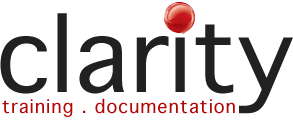Where does business success come from?
Are top sportspeople born that way? Or do they learn & hone their skills?
Great players practice daily to prepare for their game day.
What do they practice?
Techniques, tactics, strategies – the sporting version of business policies and procedures.
What do they practice?
Techniques, tactics, strategies – the sporting version of business policies and procedures.
In high level sport, teams have a playbook defining step-by-step, each player’s role, strategies, tactics and techniques. The team practices each defined play until it's embedded, and automatic. This sets them up for game-day success.
Does your business have a company playbook?
Large organisations invest heavily in their playbook or procedure manuals.
There’s a clear connection between documented processes and scalability in business. This is how the big players in any market eliminate inefficiencies and ensure consistent, high quality results.
It’s how they minimise the risks associated with knowledge being held in people’s heads, and make sure it's a business asset. Once they figure out the best ways to do things, they document it to make sure it continues to be used as the baseline.
Policies & procedures precede business success
Policies and procedures are at the core of your business.
How many points could your team score if there was no playbook and positions were not clearly defined? How would you communicate in the huddle what you wanted to get done? Chaos would develop and other, better organised teams would win.
As you grow and evolve, capture the knowledge and skills you’re developing. Your operational manual becomes a business asset that propels you forward and creates business value. If, in the future, you decide to sell your business, your documented procedures will represent immense value, and minimise risk to a new investor… impacting your business sale price.
Is your playbook easy for staff to find, navigate and understand?
Do you have an operations manual?
Is your manual one of these...
If so, it's time to:
What are the costs of NOT having policies & procedures?
Efficiency
Costs
Opportunity
Costs
Financial & legal Costs
W. edwards deming
-father of quality management-
"If you can't describe what you are doing as a process, you don't know what you're doing"
Businesses that operate without clearly articulated policies and procedures are gambling. Successful companies don't take chances. They practice, honing their skills, focused on winning through a process of well thought-out policies and procedures. Not only do policies and procedures solve business problems, and create efficiencies, but they can be the deciding factor between your business success and failure.
If you'd like some help in getting your SOP's or procedure manuals sorted, contact us by email, or give us a call on 0274397739
